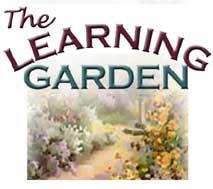
From Seed to Seed:
Plant Science for K-8 Educators
 |
From Seed to Seed: |
|
|
Why Is Genetic Diversity Important? First of all, when a population contains a large gene pool-that is, the genetic blueprints of individuals in the population vary significantly-the group has a greater chance of surviving and flourishing than does a population with limited variability. Why? Because some of the individuals may have inherited traits
that make them particularly resistant to disease or tolerant of cold,
for example. Or they may possess other traits that increase their chances
for survival. In nature, the "fittest" individuals succeed and go on to
reproduce. Darwin termed this process "natural selection." Suppose there
is an outbreak of a disease that threatens to wipe out an entire species.
The more genetic variability there is within that species, the higher
the likelihood that at least some of the individuals will be resistant,
and will survive.
Please click the BACK button on your browser to return to the course. |
||
|
Made possible by a grant from Oracle Corp. Copyright 2001, National Gardening
Association, Inc. For questions regarding this web site, contact Webmaster |